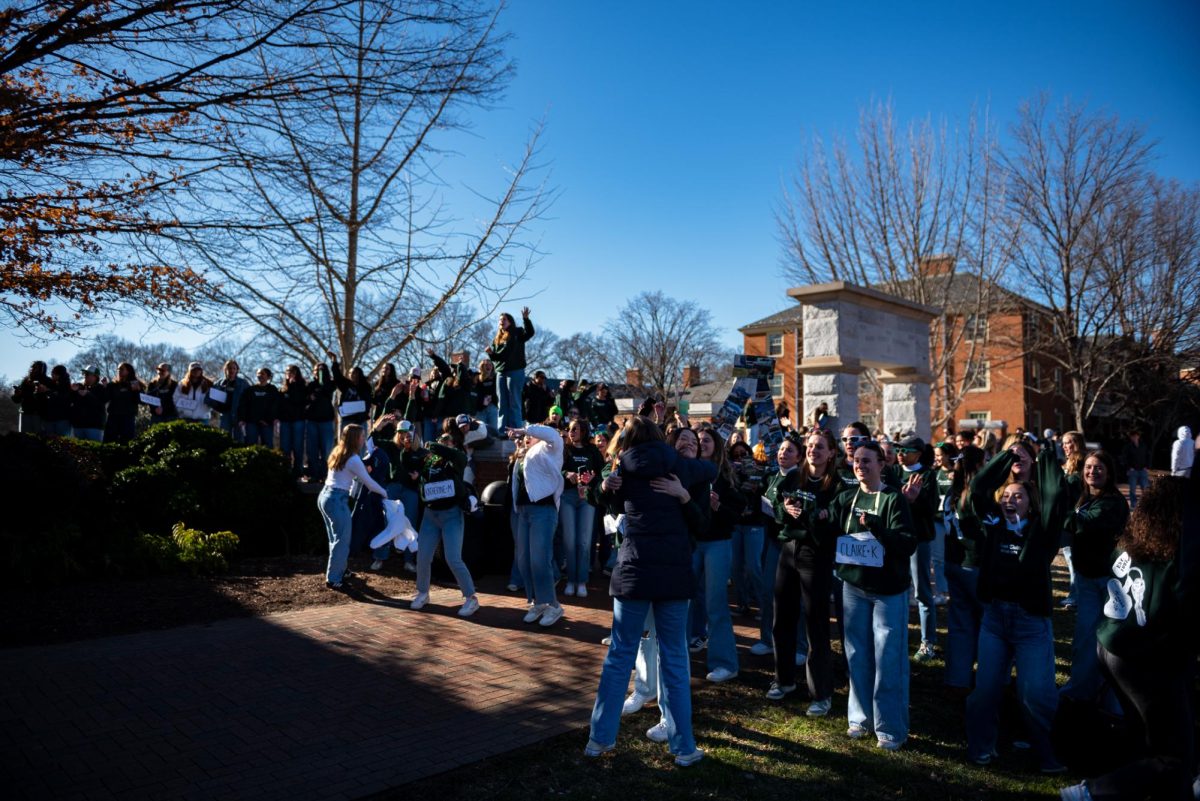Wake Forest’s annual Hazing Prevention Week took place on campus from Jan. 29 through Feb. 2, showcasing many educational programs and initiatives for the community to learn about and define hazing prevention.
“Hazing prevention is an important conversation for us to have on every college campus,” Executive Director of Student Engagement Tim Wilkinson said. “Trying to help to normalize the conversation is very important to me.”
Throughout the week, the Office of Student Engagement put together many events, which ranged from workshops to a panel to trivia night.
Wake Forest uses a definition of hazing by Kent State professor Dr. Aldo Cimino that reads “hazing is non-accidental, costly aspects of group induction activities that do not appear to be group-relevant assessments/preparations, or appear excessive in their application. Group induction activities are those tasks formally or informally required to obtain membership or participatory legitimacy for new or prospective members.”
Hazing expert Dr. Hank Noor further explains that “at least one U.S. school, club or organization hazing death has been reported every year from 1959 to 2020, and 82% of hazing deaths involve alcohol.”
The week began on Monday afternoon with the “Deacs Don’t Haze” tabling event where students could stop by and sign a pledge not to haze. A hazing prevention workshop was also held on Monday night about how to be an active member of the Wake Forest community in speaking up about hazing. Students listened to a presentation by Wilkinson that defined hazing and discussed how to put a stop to it.
On Tuesday night, Wake Forest Student Government held a “hackathon,” an event where people come together to solve a problem, where they provided feedback on the current hazing policies. They reviewed the current policies and discussed how they could be improved. Immediately after, a trivia night was held by the Student Union in Shorty’s.
On Wednesday, the Office of Student Engagement held a community-wide panel discussion. The panelists were sports psychology in university athletics Dr. Rachel Conway, Director of the University Counseling Center Dr. Denisha Champion, Communications Faculty Member Dr. John Llewellyn and Wake Forest School of Law faculty member Dr. Gregory Parks.
Wilkinson, the moderator, asked the panelists questions to get viewpoints from faculty and staff members who work with a large number of students. They each talked about their experience working with students who had been hazed and how important it is to educate the student body about the harmful effects of hazing.
“Sometimes you’re gonna have to speak up and you’re gonna have to place yourself in a position where you’re uncomfortable or you’re the outlier, where you’re the person who’s trying to make the right decision while the group is making the wrong decision,” Parks said, “but that’s what it means to be a leader and I strongly encourage you to take on that mantle.”
Conway’s final piece of advice to the attendees was that tradition is not always good.
“Things that are hazing, people consider tradition,” Conway said. “They’re really harmful, and there’s often this mindset of, well, I made it through and I turned out fine, so they can too. I would question that if you’re willing for someone else to go through that pain and torture, did you really make it out okay?”
Junior Sara Glynn expressed her appreciation for what the panelists voiced.
“It was good to see a lot of different angles like with the sports psychologist and the lawyer,” Glynn said. “It was really good advice.”
More workshops were held on Wednesday and Thursday night. Wilkinson presented national statistics and Wake Forest’s statistics regarding hazing, and he gave suggestions on how we can prevent hazing on campus.
“We did an assessment a few years ago at Wake Forest […],” Wilkinson said, “and 70 percent said hazing is at least a moderate problem at Wake Forest University.”
On Wednesday, He talked through how to tell the difference between a relevant activity and an act of hazing. Wilkinson wanted to make sure people understood the importance of prioritizing the distinction. These workshops were attended by student leaders who wanted to learn how they could implement hazing prevention into their own organizations. It counted as a credit for the Student Organization Workshop Series.
Hazing Prevention Week was filled with opportunities to learn about hazing, and organizers hoped to emphasize the importance of holding one’s community accountable.
“It’s important to stop this in its tracks,” Conway said, “because if we don’t address it, it’s going to continue. We need to have open and honest conversations about this.”














